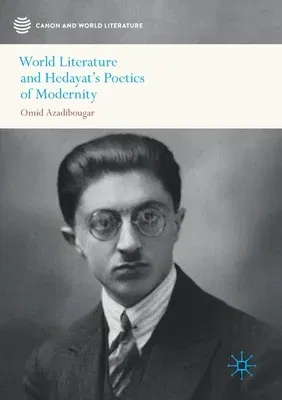Omid Azadibougar
(Author)World Literature and Hedayat's Poetics of Modernity (2020)Paperback - 2020, 2 February 2021

Qty
1
Turbo
Ships in 2 - 3 days
In Stock
Free Delivery
Cash on Delivery
15 Days
Free Returns
Secure Checkout
Part of Series
Canon and World Literature
Print Length
203 pages
Language
English
Publisher
Palgrave MacMillan
Date Published
2 Feb 2021
ISBN-10
9811516936
ISBN-13
9789811516931
Description
Product Details
Author:
Book Edition:
2020
Book Format:
Paperback
Country of Origin:
NL
Date Published:
2 February 2021
Dimensions:
21.01 x
14.81 x
1.3 cm
ISBN-10:
9811516936
ISBN-13:
9789811516931
Language:
English
Location:
Singapore
Pages:
203
Publisher:
Series:
Weight:
299.37 gm

